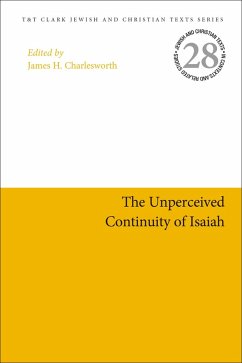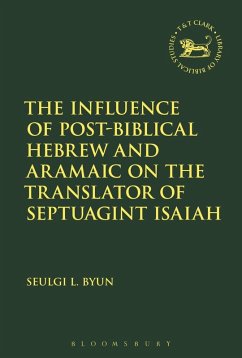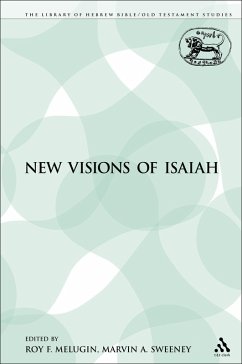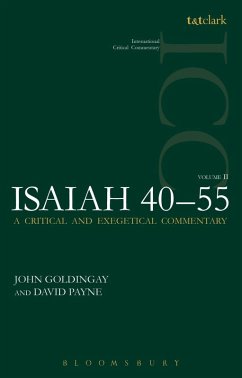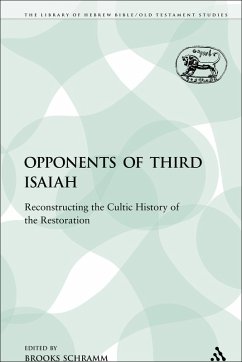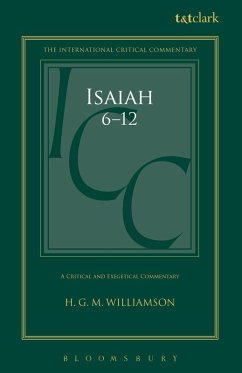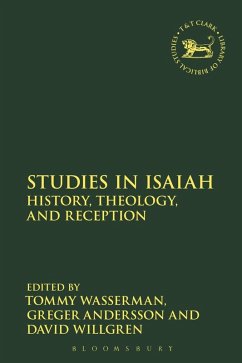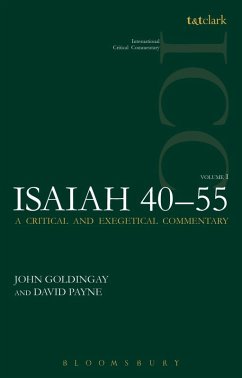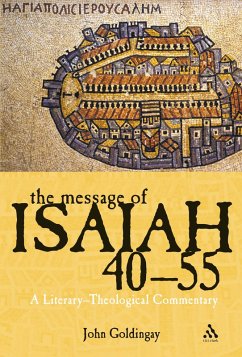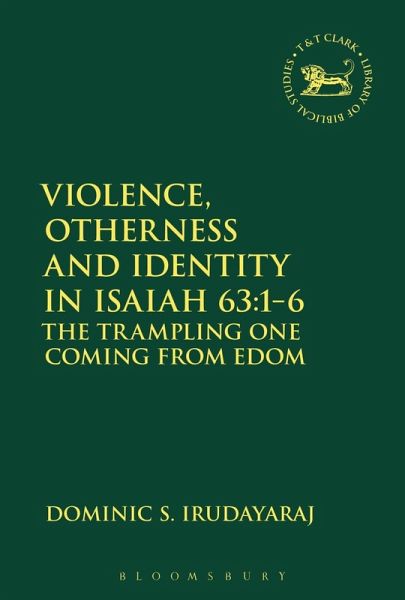
Violence, Otherness and Identity in Isaiah 63:1-6 (eBook, PDF)
The Trampling One Coming from Edom

PAYBACK Punkte
14 °P sammeln!
Violence disturbs. And violent depictions, when encountered in the biblical texts, are all the more disconcerting. Isaiah 63:1-6 is an illustrative instance. The prophetic text presents the "Arriving One" in gory details ('trampling down people'; 'pouring out their lifeblood' v.6). Further, the introductory note that the Arriving One is "coming from Edom" (cf. v.1) may suggest Israel's unrelenting animosity towards Edom. These two themes: the "gory depiction" and "coming from Edom" are addressed in this book. Irudayaraj uses a social identity reading to show how Edom is consistently pictured a...
Violence disturbs. And violent depictions, when encountered in the biblical texts, are all the more disconcerting. Isaiah 63:1-6 is an illustrative instance. The prophetic text presents the "Arriving One" in gory details ('trampling down people'; 'pouring out their lifeblood' v.6). Further, the introductory note that the Arriving One is "coming from Edom" (cf. v.1) may suggest Israel's unrelenting animosity towards Edom. These two themes: the "gory depiction" and "coming from Edom" are addressed in this book. Irudayaraj uses a social identity reading to show how Edom is consistently pictured as Israel's proximate and yet 'other'-ed entity. Approaching Edom as such thus helps situate the animosity within a larger prophetic vision of identity construction in the postexilic Third Isaian context. By adopting an iconographic reading of Isaiah 63:1-6, Irudayaraj shows how the prophetic portrayal of the 'Arriving One' in descriptions where it is clear that the 'Arriving One' is a marginalised identity correlates with the experiences of the "stooped" exiles (cf 51:14). He also demonstrates that the text leaves behind emphatic affirmations ('mighty' and 'splendidly robed' cf. v.1; "alone" cf. v.3), by which the relegated voice of the divine reasserts itself. It is in this divine reassertion that the hope of the Isaian community's reclamation of its own identity rests.




